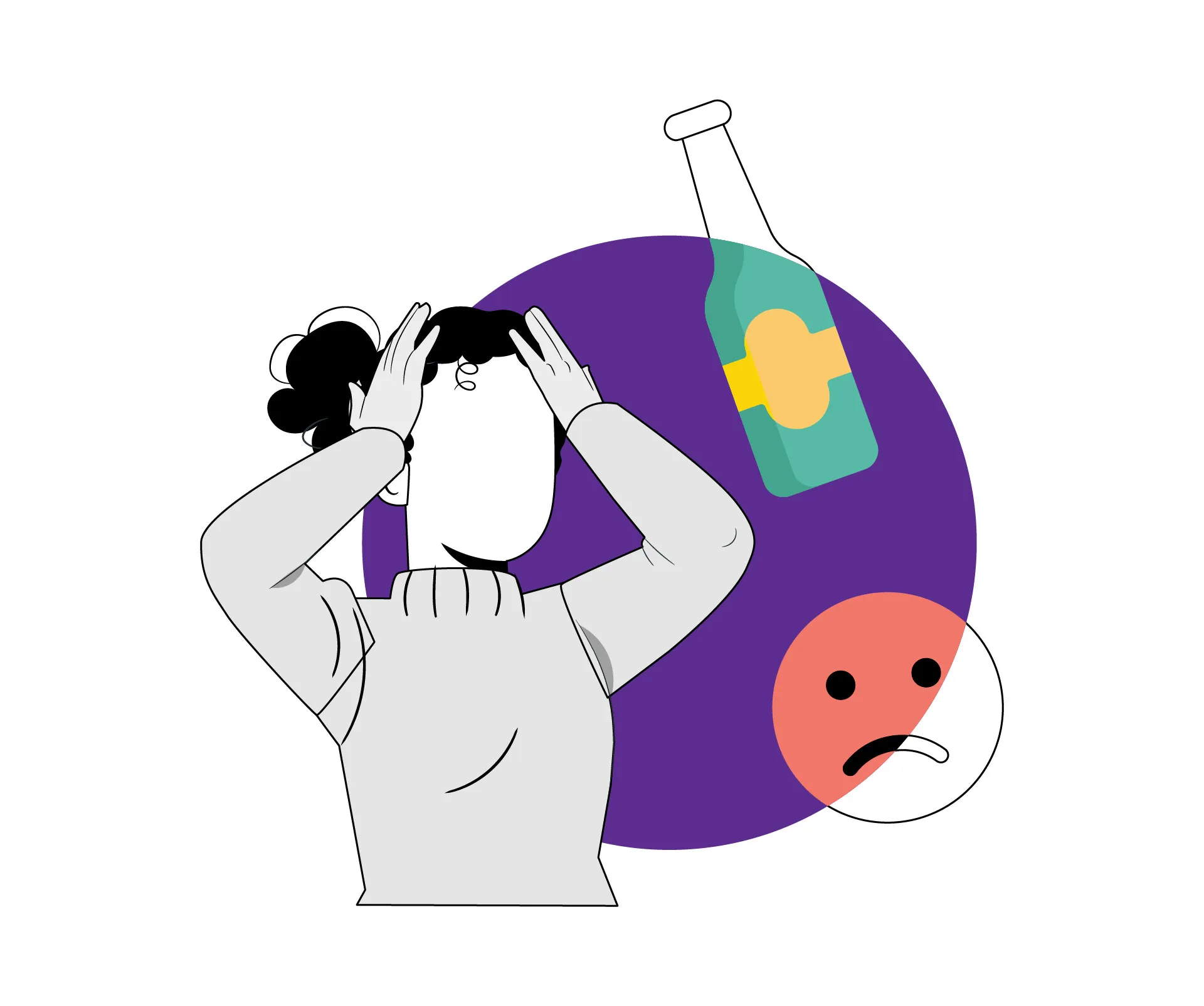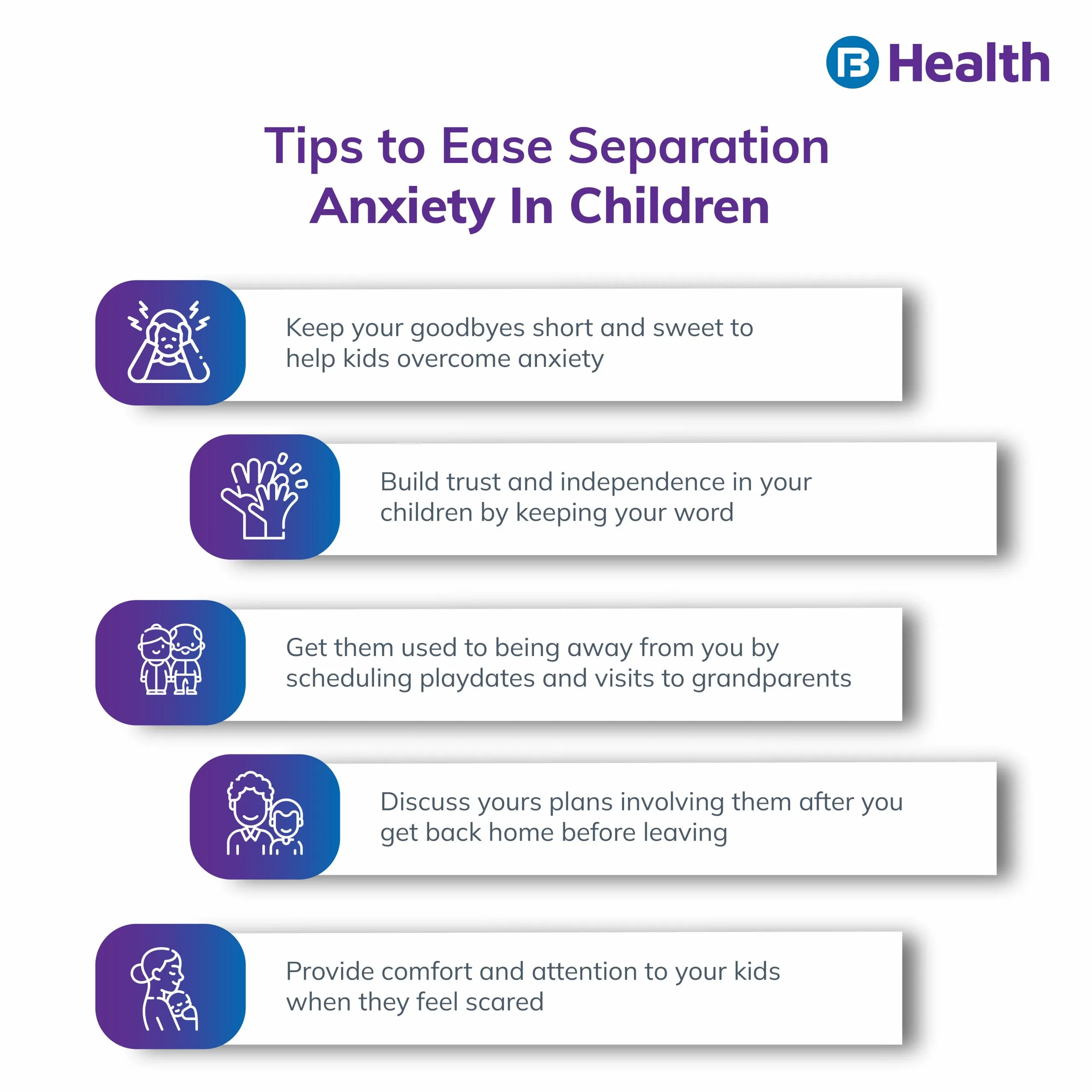Psychiatrist | 5 min read
Separation Anxiety Disorder: Causes, Symptoms, and Risk Factors
Medically reviewed by
Table of Content
Synopsis
Separation anxiety in children occurs when they feel scared to leave their loved ones. Separation anxiety in adults may also develop, which is known as separation anxiety disorder. Read to learn more.
Key Takeaways
- Separation anxiety is common until 3 years in children
- Separation anxiety disorder is higher in girls than in boys
- Separation anxiety in adults can affect their work life
During the infant and toddler phases in a child’s life, it is common to experience separation anxiety. While separation anxiety is common until three years, there are a few kids who never outgrow it. In such children, it occurs as a severe condition known as a separation anxiety disorder. Kids with separation anxiety disorder tend to face mental health challenges.
A study reveals that separation anxiety disorder is high in kids between 7-9 years. The incidence of separation anxiety disorder in children is approximately 3.6% [1]. While more studies need to be done on anxiety disorders in India like this one, one study proved that such disorders were common among adolescents in rural India [2].
If you notice that separation anxiety in children is interfering with their routine and is intense, it indicates they may be experiencing a separation anxiety disorder. Separation anxiety occurs when you fear being away from your loved ones. When it comes to separation anxiety, adults are no exception to this condition. While it appears as a common developmental phase in children, separation anxiety in adults may require immediate medical intervention.
Once you understand the meaning of separation anxiety meaning, what helps in dealing with this condition is for you to monitor the behavioral pattern closely. When you notice certain unusual symptoms that go beyond the developmental phase, it is a separation anxiety disorder. The prevalence of separation anxiety disorder in females is higher than that of males, as per a report [3].
Separation anxiety in adults may affect their work life as they find it hard to leave home. Timely diagnosis and treatment can help adults and children overcome separation anxiety.
Read to get an insight on separation anxiety meaning, symptoms, and its treatment regime.

Separation Anxiety Disorder Symptoms
To understand the exact separation anxiety meaning, you’ll have to know its symptoms. It is common for small children to feel scared when separated from their parents or other caregivers. However, they start realizing that their parents will come back home. While adults feel anxious to leave their kids, children get scared when they have to leave their parents. You may observe your kids throwing tantrums while going to school or not allowing you to go to work.
Symptoms of separation anxiety disorder in children:
- Feeling scared to stay alone
- Fearing that something terrible might happen to their loved ones
- Getting afraid of being lost
- Following your loved ones around in the house
- Experiencing frequent nightmares
- Wetting the bed while asleep
Symptoms of separation anxiety in adults:
- Prone to physical ailments like nausea and headaches
- Constant nightmares
- Poor performance at work
- Frequent panic attacks when loved ones aren’t in contact
- Poor cognitive skills and memory
- Social exclusion
- Breathing problems
- Chest pain
Separation Anxiety Disorder Causes
A traumatic incident in a child or adult’s life could trigger this condition. Whether it is moving to a new place or the death of a loved one, a separation anxiety disorder may have many triggers. Separation anxiety in adults occurs when you are overprotective with your loved ones. While genetic factors are attributed to this condition, a few environmental factors may also cause separation anxiety.
Here are some common reasons responsible for this condition in children:
- Relationship problems like divorce of parents
- Alcohol problems in parents
- Absence of parents
- Anxiety attacks in parents

Separation Anxiety Disorder Risk Factors
In adults with obsessive-compulsive disorder, separation anxiety is a common symptom. Adults may experience the following conditions:
- Panic disorders
- Different types of phobias like social phobia
- Childhood abuse
- Separation from family during childhood
- Strict upbringing
Separation Anxiety Disorder Diagnosed
During the diagnosis, your doctor may inquire about your child’s symptoms and medical history. Your child may have to undergo various tests before confirming separation anxiety disorder. This is mainly to understand if this is a part of the ongoing developmental phase in children or not. The mental health specialist may observe your child’s reactions as well.
To confirm separation anxiety disorder in children, symptoms must be present for approximately four weeks. As a part of the diagnostic procedure, a specialist may also assess your interaction with the child. This is to ascertain if your parenting style is affecting your child.
In adults, the specialist may enquire about your symptoms with your loved ones after inquiring with you. However, your condition is confirmed if symptoms persist for at least six months or if they affect your normal functioning.
Additional read: Can Mental Health Issues Be Diagnosed With A Blood TestSeparation Anxiety Disorder Treatment
The most common treatment techniques used are medications and therapies to minimize separation anxiety in adults and children. Therapy is an effective tool for treating separation anxiety disorder. Amongst various therapies, cognitive behavioral therapy is the most commonly followed one. Using this therapy, kids are taught relaxation and breathing techniques that can help them cope with anxiety.
Another effective way is the parent-child interaction technique. This method helps strengthen the bond between parents and children by assuring kids of their safety. It also helps parents understand the main reason for their child’s anxiety. To minimize behavioral symptoms in children, parents are taught to interact clearly with their kids.
For adults, cognitive behavioral therapy is the most common treatment regime followed. In addition, a few other therapy techniques used in adults include.
- Group therapy
- Family therapy
- DBT (Dialectical behavior therapy)
Antidepressants are also prescribed in some cases for children and adults. These medicines help tackle the more severe symptoms of separation anxiety.
Now that you are familiar with separation anxiety meaning and its causes keep a close watch on its warning signs. If you notice any unusual symptoms, meet a psychiatrist for an evaluation. For mental well-being, it is vital to reduce stress and anxiety. The best way to do this is to be regular with your practice of mediation and yoga. These techniques help you efficiently manage anxiety and depression. To cope better, reach out to top mental health specialists on Bajaj Finserv Health. Book an online appointment using the app or website and prioritize your mental health. Remember, a happy mind is essential for your overall well-being.
References
- https://www.ncbi.nlm.nih.gov/pmc/articles/PMC3205969/?tool=pmcentrez
- https://www.ncbi.nlm.nih.gov/pmc/articles/PMC6881902/
- https://www.researchgate.net/publication/306359279_A_study_to_screen_separation_anxiety_disorder_among_higher_secondary_school_students
Disclaimer
Please note that this article is solely meant for informational purposes and Bajaj Finserv Health Limited (“BFHL”) does not shoulder any responsibility of the views/advice/information expressed/given by the writer/reviewer/originator. This article should not be considered as a substitute for any medical advice, diagnosis or treatment. Always consult with your trusted physician/qualified healthcare professional to evaluate your medical condition. The above article has been reviewed by a qualified doctor and BFHL is not responsible for any damages for any information or services provided by any third party.





